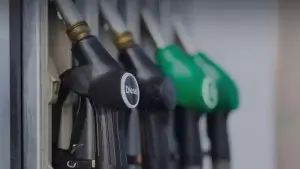How Portable Restroom Operators Combat Increased Fuel Costs
 |
|
It’s no secret that fuel prices are affecting the bottom line of your portable restroom business. We want to help you offset the costs. With that being said, below are four tips we have gathered from industry experts to help you get the most out of your business:
1. Should I raise prices for my portable restroom rentals?Many companies have taken the approach of either adding a fuel surcharge or raising the price of the rental or service fee. This can look like, but is not limited to: Increasing portable restroom delivery fees Some companies prefer to add on a delivery fee or increase their existing delivery fee to offset the rise in fuel costs instead of raising prices for their rentals. This fee can be determined in many ways but most commonly we have seen it added to their customer’s invoice as a flat rate that will cover the cost. This is a great option for operators to not only cover the costs of fuel but also the drive time it takes to deliver units. Increasing your unit rental rate We have also seen operators raise the price of their unit rental rate by a determined amount. Some businesses prefer this method if they are already wanting to increase their prices. Adding a fuel surcharge A fuel surcharge is an additional charge that is added on top of the original contract price and is used when fuel prices are above a certain set price. Here is one way that you can calculate your fuel surcharge:
There are many other ways to calculate a fuel surcharge you would need to charge your customers in order to offset fuel increases. Asking those in your community for their methods is a great way to see what is working best for them and their customers. Every business is different therefore, there is no “right” way for your company to make up for rising fuel prices. 2. What should I tell my customers when I increase prices for my portable restrooms?Increasing your prices can seem intimidating and we get it, you don’t want to risk losing any customers because of your prices. However, prices are increasing for many different goods and services so if you have loyal customers, they will understand that you still need to make a profit. You will probably have some customers that are unhappy or you might even lose them as customers when they hear the news. That’s why it is important to get ahead of frustrations customers might have by having clear communication and expectations from your business. Many operators are sending out emails and/or letters to their current customers to communicate with them about the rising costs of their service due to fuel costs so that they aren’t shocked when they see their invoice. If you are unsure what to put on your notice or need ideas of what others in the industry are saying, reach out to your friends in the industry for templates. If your business has the time and capacity, giving your customers a call or talking with them in person at their next service is also a great way to keep your communication clear and your relationship in good standing. 3. How can fleet maintenance help use less fuel?Don’t slack on the maintenance of your vehicles. For example, ensuring your tires are in good condition (not worn out, filled to the correct air pressure, and correctly aligned) can impact the fuel economy your truck gets. In addition, changing your truck’s air filters regularly can help increase your vehicle’s fuel economy as well. It’s easy to fall behind on maintenance, especially during the busy season, but spending the extra time to ensure your vehicles are in good condition will help you save money in the long run. 4. How can I optimize my driver’s routes?Optimizing your routes is highly important when it comes to cutting back on fuel costs and minimizing wear and tear on your trucks. We have seen this done in multiple ways including manually on pen and paper with Google Maps and route optimization software. The most successful PROs are investing in tools that optimize their routes which cuts down on vehicle maintenance, fuel, and overtime while increasing profits. Whatever you choose to use, every portable toilet business operator should be optimizing their routes to raise profitability. 5. How can I connect with other portable restroom operators?There are many business operators just like you that are willing to share their ideas and strategies. Don’t hesitate to reach out to other operators in your community. You can join Facebook groups like Portable Toilet Business Club, Porta Potty People, and Portable Toilet Network to get connected with people in the industry and see what they have implemented. You can also become a member of PSAI (Portable Sanitation Association International) which will give you benefits like joining live conversations about hot topics like this, gaining access to industry-specific resources, and networking with industry leaders. We hope that these tips offer insight into tactics your company can use to combat increasing fuel prices. Creating a plan for how you will offset the rise in fuel costs will help your business be better prepared for future situations like this. See how much your company can save on time and salary with our ROI calculator. |


